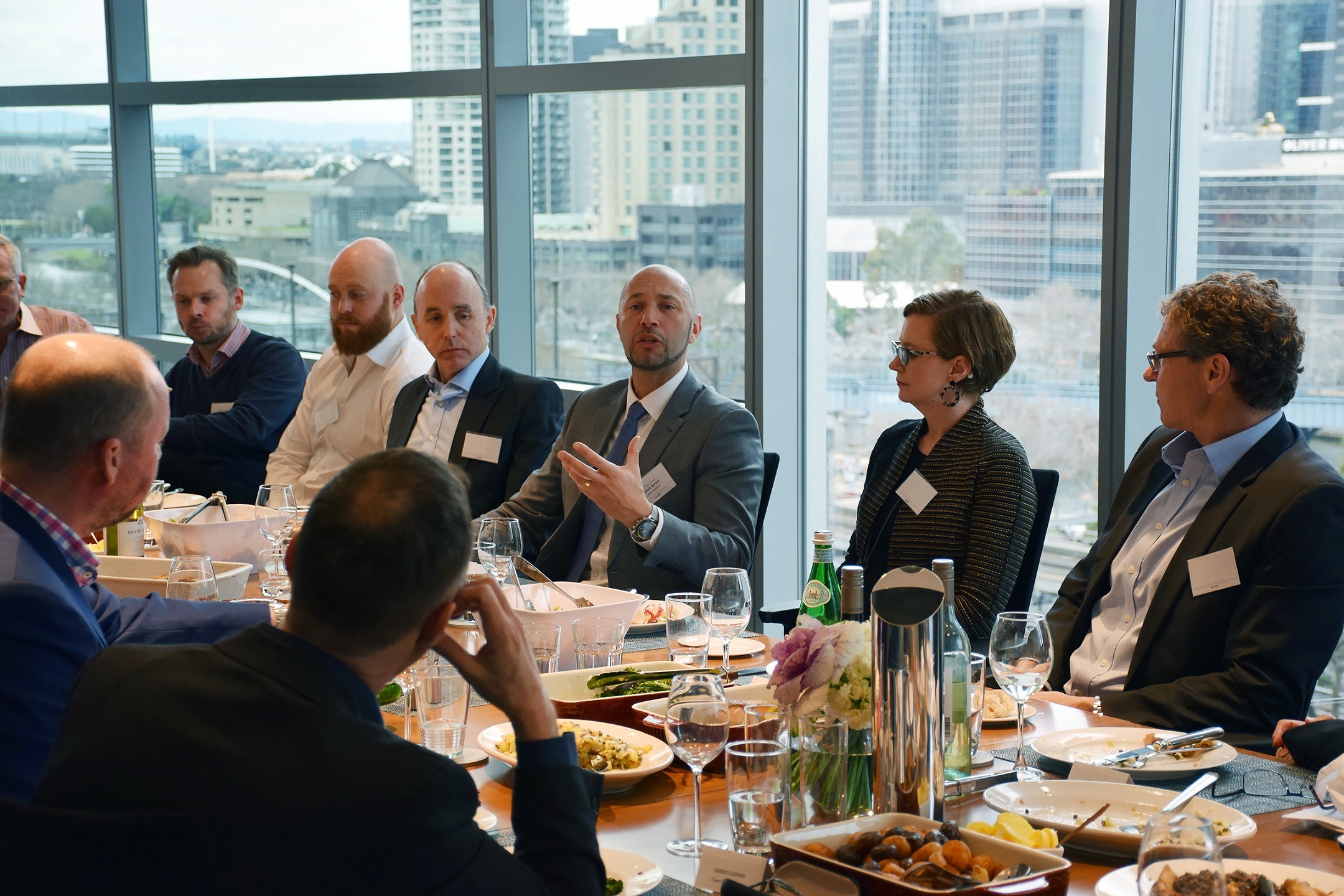Last week Slade Group hosted Mark Bartoli – Founding Director, ATEC Solutions along with other Civil Infrastructure Construction & Engineering Leaders for a boardroom lunch. Up for discussion were the next wave of mega projects, renewables and energy security, skill shortages and innovation. There was great conversation and perspectives around the table with leaders from rail, road, water and energy, all contributing.
We started with the Treasury’s budget allocation; 84% of it on an “Infrastructure Blitz”, with only six percent and seven percent allocated to Healthcare and Education respectively.
- Has the government weighted that correctly?
- Is enough of this investment being spent on regional development to encourage a decentralised CBD approach?
- The $100 billion to be invested in Australia’s infrastructure over the next 10 years is excellent news for Construction and Engineering sector, HOWEVER,
- Wage growth and consumer spending have confoundingly continued to stagnate.
The conversation moved on to Renewable Energy. Consensus is that this should be championed by Australia, as our vast land mass relative to population size provides the opportunity to make excess energy to sell to foreign countries. With 21% of electricity being generated by renewables last year in Australia, there were questions including:
- Has there been a big enough shift in general sentiment towards renewable energy?
- Should Australia be looking to create huge off-shore wind farms?
One problem with wind and solar is that the power system in Victoria was not designed for non-synchronous generation. In layman’s terms, as the power produced by wind and solar is irregular, this can weaken the strength of the local area and have knock-on effects for the whole power system. One way of stabilising this is through Pumped Hydro and with work commenced on Snowy 2.0, and the Australian government identifying other areas for Hydro Generators, it looks as though this sector will show strong growth over the coming years.
A huge topic of conversation for anyone in the infrastructure sector at the moment is skill shortages. With massive infrastructure projects in play across Australia means we simply don’t have enough engineers for all the projects. Questions raised:
- Can Australia attract engineers from overseas?
- Are there enough visas for overseas engineers to move here?
- How can we assist them in adapting to new cultures and working environments?
- Should the governments, both federal and state, take more responsibility for forward planning of these infrastructure investments to avoid the current skills shortages being experienced?
Many are seeing an increase in a contingent workforce, but the drive is actually from Generation X’ers, who can now contract themselves out to various companies not only bringing financial reward but allowing them to work on a multitude of projects without being tied down to a single employer.
The overarching theme throughout all the different topics was policy. Too much policy seems either outdated, absent or having limited meaning, resulting in hindered investment in innovation and talented engineers becoming frustrated with unreasonable constraints. Policy needs to be changed to encourage the current and next generation of engineers to improve quality of life, enhance the efficiency of infrastructure and create new industries.
If you’d like to hear more, please give me a call or, continue the conversation by posting a comment on this blog or feel free to send through a question for me to refer on to Mark Bartoli. If you would like to be a facilitator at one of our Slade Group quarterly boardroom lunches please contact me directly.
Luke has two years experience recruiting technical and engineering positions in London and Melbourne. Experienced in working in challenging markets, Luke has excellent resourcing abilities, enabling him to deliver hard to find passive candidates. With a degree in Engineering, he is able to fully appreciate both candidates’ desires and an organisation’s needs, including understanding complex technical skillsets.

